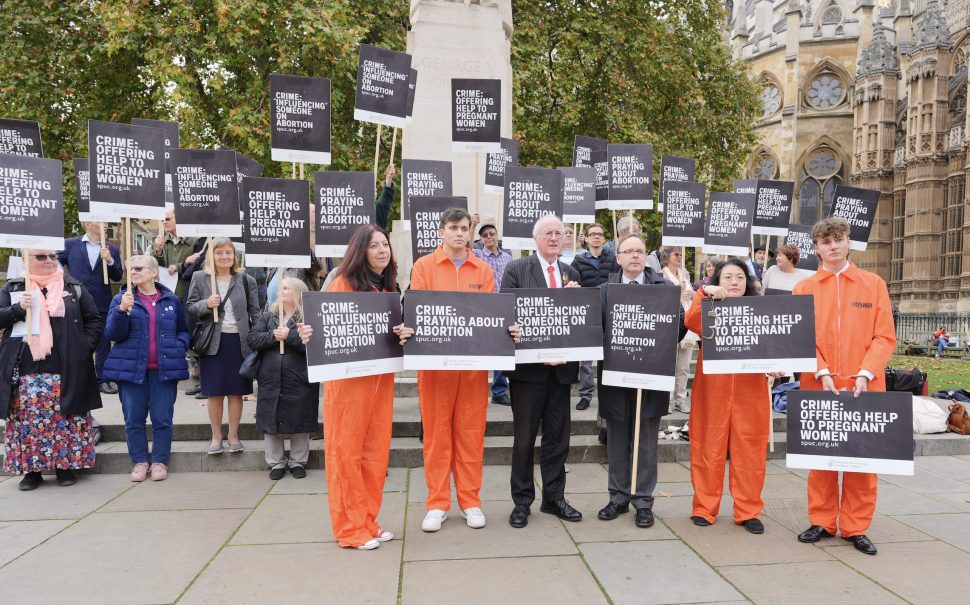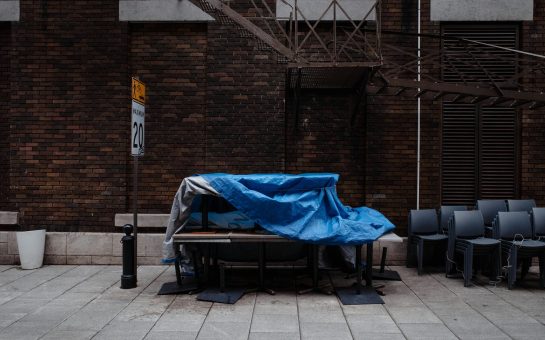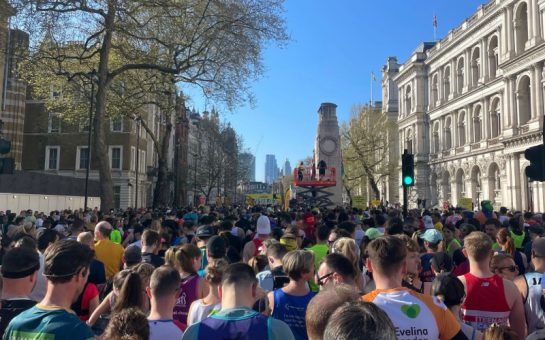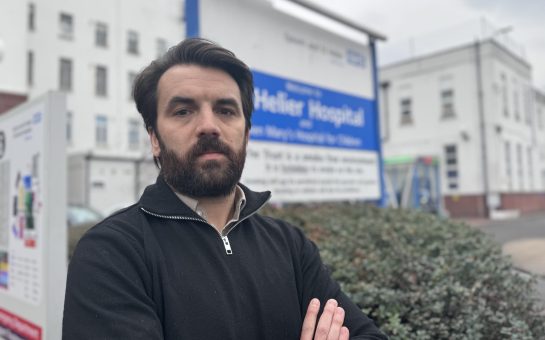Around 60 pro-life activists dressed as prisoners staged a protest outside Parliament to oppose abortion buffer zones.
As of the 31st October, “safe access zones” have been put in place creating a 150m-wide area outside clinics to stop pro-life campaigners from handing out leaflets, holding vigils and showing explicit images to women near the sites.
Some demonstrators wore orange prison jumpsuits, while others held placards to express their opposition to the introduction of the buffer zones.
Jim Shannon, Member of Parliament for Strangford and the Northern Irish Democratic Unionist Party’s Health Spokesperson, has offered his support to The Society for the Protection of Unborn Children’s (SPUC) demonstration on the 31st October 2024.
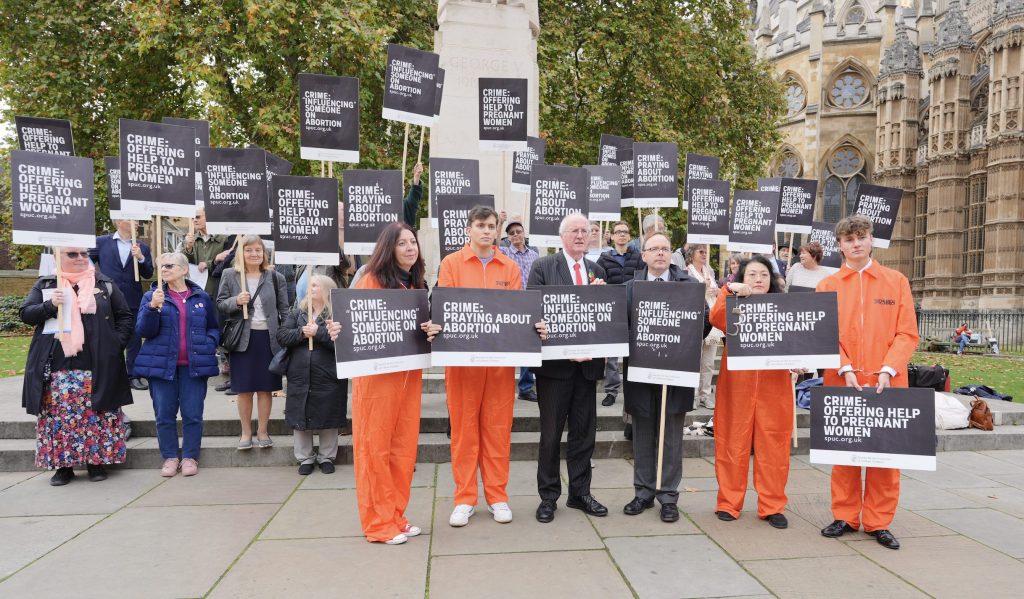
Jim Shannon MP pictured supporting the Society of the Protection of Unborn Children’s demonstration outside the Houses of Parliament on 31st October 2024.
Jim Shannon, the Member of Parliament for Strangford and the Northern Irish Democratic Unionist Party’s Health Spokesperson, attended SPUC’s demonstration outside of Parliament.
He said: “It is important that people have the right to express themselves.
“I opposed it for being a step too far for freedom; as one who always believes in freedom for people to express themselves in a genuine peaceful way.”
SPUC staff and CEO John Deighan also participated in the peaceful protest.
Shannon continued: “The decision has been taken, and we will want to ensure that when it comes to enforcement of the law that it’s not forced in a draconian, heavy-handed way – that the police are gentle.
“We have to accept that this is the law of the land, whether we like it or not.”
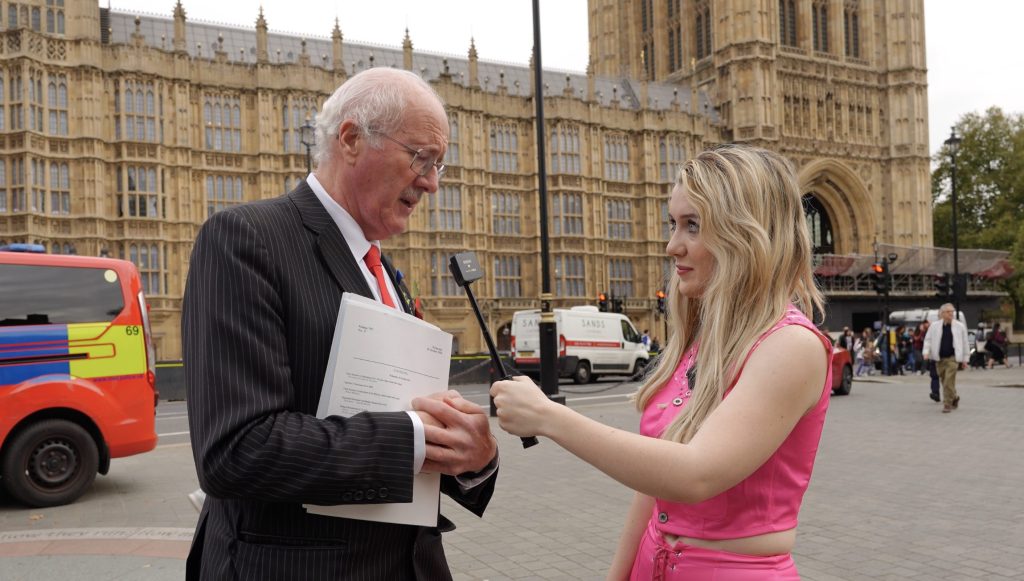
Anna McGovern interviewed Jim Shannon MP for South West Londoners.
Section 9 of the Public Order Act 2023 makes “influencing” any person who wants to access an abortion clinic illegal.
Safe access buffer zones will be enforced outside all abortion centers in England and Wales, “to bring in stronger safeguards for women accessing services”, according to new government legislation.
Police will now have the discretion to assess each case on an individual basis.
However, potential examples of harassment may include distributing anti-abortion leaflets, protesting abortion rights, “silent prayer”, or verbally confronting individuals seeking access to abortion services.
Ben Weller, a pro-life activist working with the Society for the Protection of Unborn Children, said: “People can be arrested simply for praying outside of abortion clinics, for expressing their view on abortion outside abortion clincs, and for offering help to women to save their children.
“If you believe in free speech, you should not believe in these buffer zones.
“You can be pro-choice or pro-life, but if you believe people should be able to put their opinion across, then you should not believe in these ghastly things.”
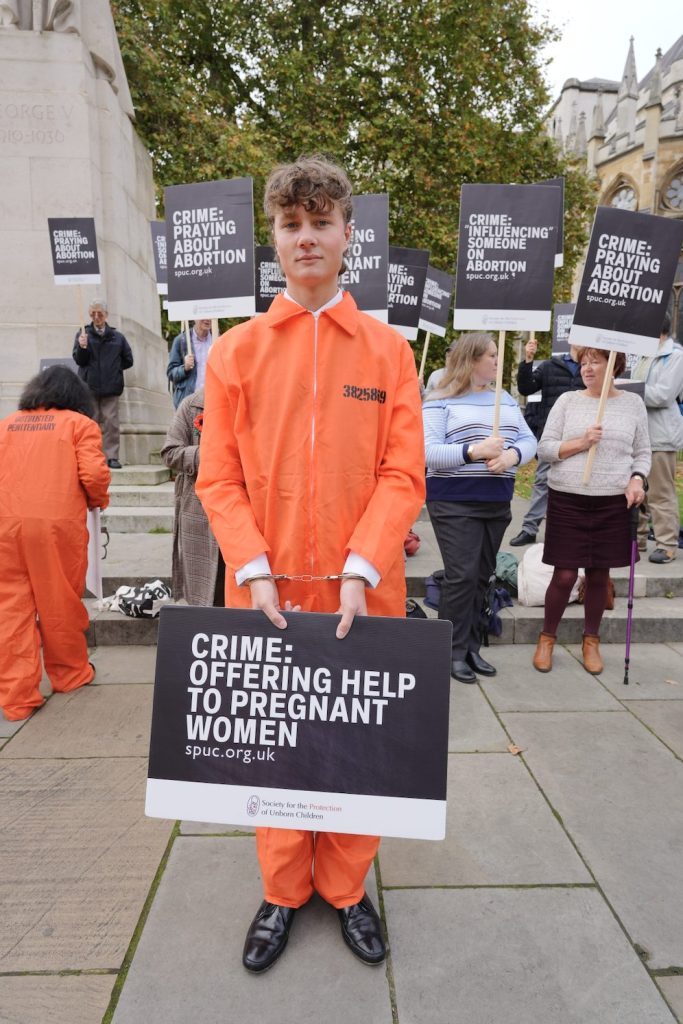
Ben Weller, 20, pictured dressed in ‘prisoner’ garb in protest of the abortion buffer zone legislation.
Local abortion buffer zones are already facing legal challenges.
One such case involves Isabel Vaughan-Spruce, who was arrested twice for silently praying outside an abortion clinic and later received a £13,000 payout from West Midlands Police, who said to have settled her civil claim “without any admission of liability”.
Military veteran Adam Smith-Connor, who prayed outside an abortion clinic in Bournemouth, was found guilty of violating a local buffer zone.
This conviction was described by the Catholic Herald as a “thought-crime” and has been labelled the “first conviction of a Christian for thought-crime in the UK in modern times”.
Meanwhile, in another ongoing legal case, pensioner Livia Tossici-Bolt from Dorset is being prosecuted for holding up a sign that read “Here to talk if you want” within an abortion clinic buffer zone.
Polling conducted by Savanta reveals that only 21% of the public supports the introduction of nationwide “buffer zones” around abortion clinics.
Support is notably lower among 18-34-year-olds, with just 15% in favour of such zones.
The survey also found that a majority of respondents either opposes any restrictions on speaking about abortion outside clinics or supports restrictions that align with the laws in place before the new legislation.
Several human rights groups and campaigners, including some who advocate for abortion access, have voiced opposition to the introduction of buffer zones.
Among these critics are prominent figures such as human rights campaigner Peter Tatchell, as well as organisations like Big Brother Watch, Index on Censorship, Liberty, the Freedom Association, and the Manifesto Club.
Current laws already grant authorities powers to maintain public order and protect women and the public from genuine harassment and intimidation, including outside abortion clinics.
Featured image: Anna McGovern
